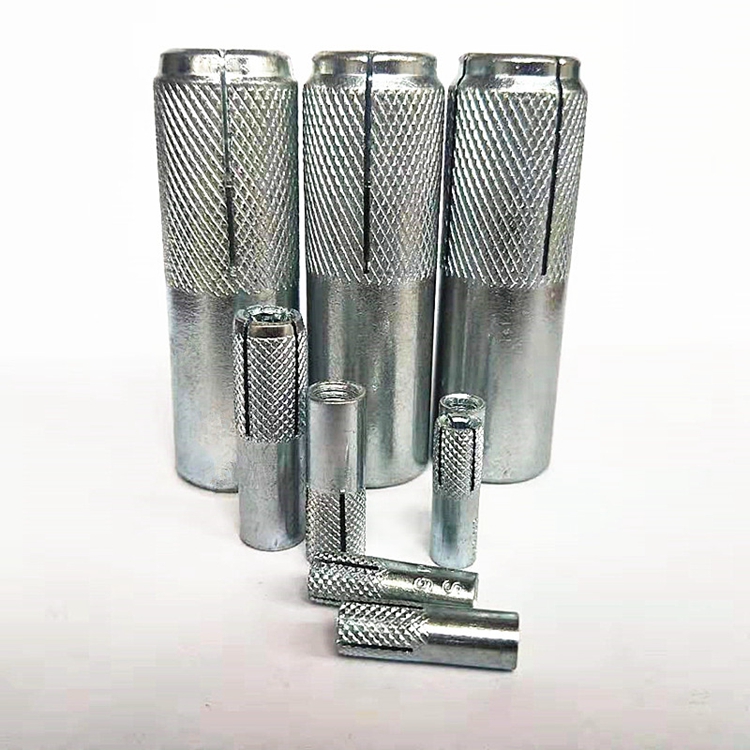High-Quality Plastic Bolts and Nuts Manufacturing Solutions for Various Industries
ທ.ວ. . 14, 2024 13:59 Back to list
High-Quality Plastic Bolts and Nuts Manufacturing Solutions for Various Industries
The Rise of Plastic Bolts and Nuts A Factory Perspective
In the ever-evolving landscape of manufacturing, the use of plastic bolts and nuts has gained significant traction. As industries strive for innovative solutions that offer both efficiency and sustainability, these lightweight yet durable fasteners have emerged as a fascinating niche. This article delves into the manufacturing processes, benefits, and applications of plastic bolts and nuts, highlighting their significance in modern production.
Understanding Plastic Fasteners
Plastic bolts and nuts are fasteners made primarily from different types of engineering plastics, such as nylon, polypropylene, and polycarbonate. Unlike their metal counterparts, these plastic alternatives are not only lighter but also resistant to corrosion, making them ideal for various applications. The manufacturing process typically involves injection molding, where melted plastic is injected into a mold to create the desired shape. This method allows for mass production and precise dimensions, which are crucial for ensuring a proper fit.
The Manufacturing Process
The plastic bolts and nuts factory operates on a systematic approach that integrates advanced technology and skilled craftsmanship. The journey begins with sourcing high-quality raw materials, which are essential for producing robust and reliable plastic fasteners. Once the materials are received, they undergo rigorous quality checks to ensure they meet industry standards.
The next step involves the injection molding process. The raw plastic is first heated until it reaches a molten state, after which it is injected into precisely designed molds. This process can be automated with state-of-the-art machinery, allowing for rapid production rates and minimized human error. Once the fasteners cool and solidify, they are removed from the molds, inspected for defects, and prepared for packaging.
Quality control is an integral part of the manufacturing process. Each batch of plastic bolts and nuts undergoes thorough testing to assess strength, flexibility, and resistance to environmental factors. Only products that pass these stringent tests are approved for distribution, ensuring that customers receive fasteners that meet their operational needs.
Benefits of Plastic Fasteners
plastic bolts and nuts factory

The advantages of using plastic bolts and nuts are manifold. Firstly, their lightweight nature significantly reduces the overall weight of assemblies, which can lead to cost savings in transportation and installation. Additionally, plastic fasteners are non-conductive, making them suitable for electrical applications where metal fasteners may pose safety risks.
Another key benefit is their corrosion resistance. In environments where moisture or chemicals are present, plastic fasteners can outperform metal alternatives by preventing rust and degradation. This property extends the longevity of products and reduces maintenance costs over time.
Plastic bolts and nuts also offer versatility. They can be manufactured in various colors and designs, allowing for aesthetic customization that can enhance the visual appeal of products. Moreover, the availability of different plastic grades enables manufacturers to choose materials that best suit their specific application requirements.
Applications Across Industries
The application of plastic bolts and nuts spans across numerous industries, including automotive, aerospace, electronics, and consumer goods. In the automotive sector, they are used in interior components where weight reduction is critical. The aerospace industry also leverages these fasteners to enhance the efficiency of aircraft without compromising safety.
In electronics, plastic fasteners play a vital role in assembling devices that require non-conductive materials to prevent short circuits. The consumer goods sector utilizes plastic bolts and nuts in the production of everything from furniture to toys, illustrating their adaptability and widespread appeal.
The Future of Plastic Fasteners
As the push for sustainable practices continues to grow, the plastic bolts and nuts factory is poised to play a vital role in the circular economy. Innovations in biodegradable plastics and recycling processes are paving the way for more environmentally friendly fasteners. This shift is not only beneficial for the planet, but it also addresses the increasing consumer demand for sustainable products.
In conclusion, the plastic bolts and nuts factory represents a significant advancement in manufacturing. Through innovative processes and a commitment to quality, these factories are not only shaping the future of fasteners but are also contributing to a sustainable and efficient industrial landscape. As we continue to explore the benefits and applications of plastic fasteners, it becomes clear that their role in modern manufacturing will only expand, driving further innovation and environmental responsibility.
Latest news
-
Reliable Axle Nuts Supplier | Quality & Precision Fasteners
NewsAug.23,2025
-
Durable Bolts for Lawn Mower Handle - Top Supplier & Manufacturer
NewsAug.22,2025
-
High-Quality Bolts for Lawn Mower Handle Supplier & Manufacturer
NewsAug.21,2025
-
Reliable Axle Nuts Supplier | High-Quality Automotive Parts
NewsAug.19,2025
-
Premium Wire Bolts Suppliers | Durable & Reliable Fasteners
NewsAug.18,2025
-
Leading Metric Wood Screw Companies & Manufacturers
NewsAug.17,2025
